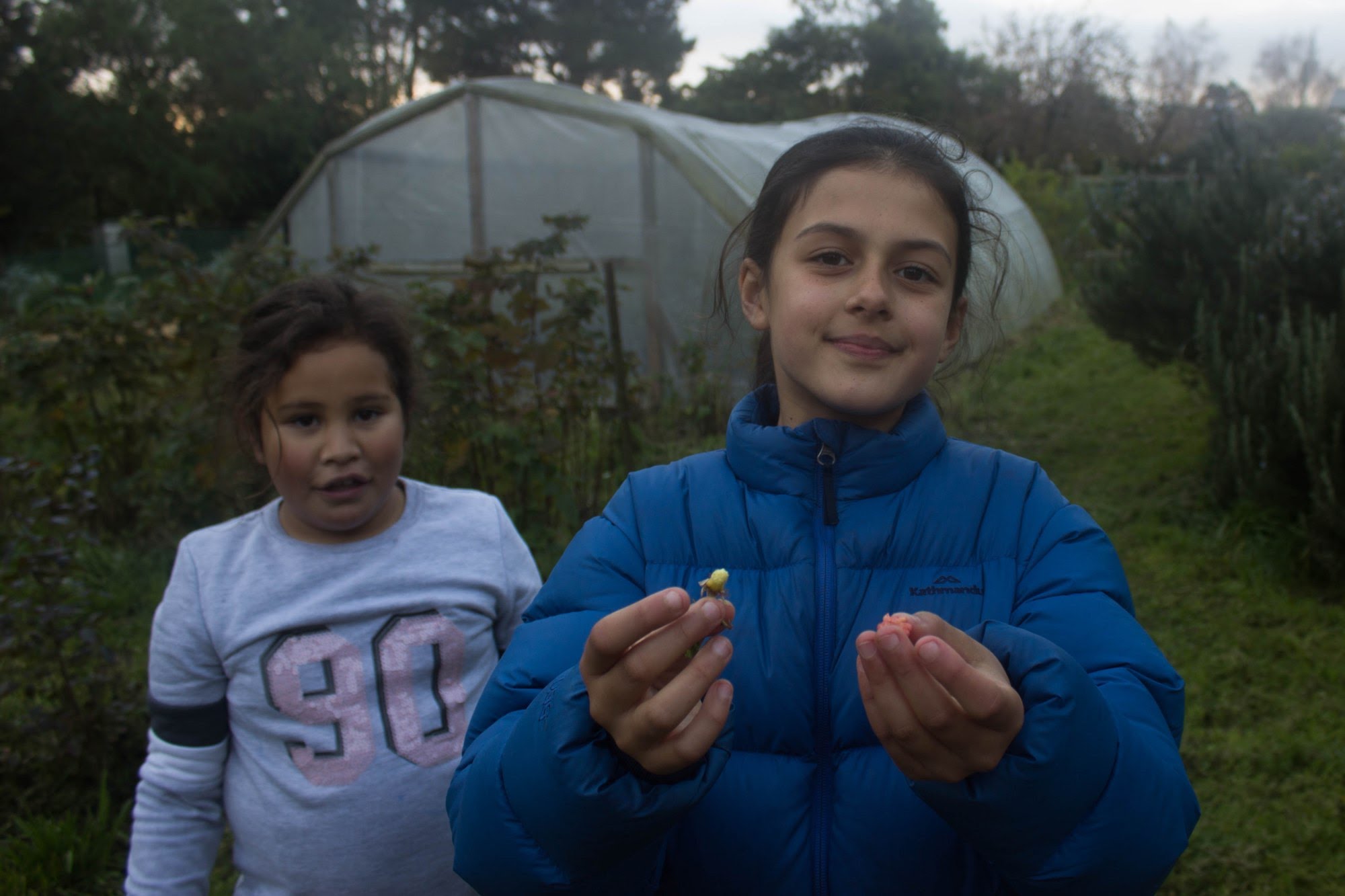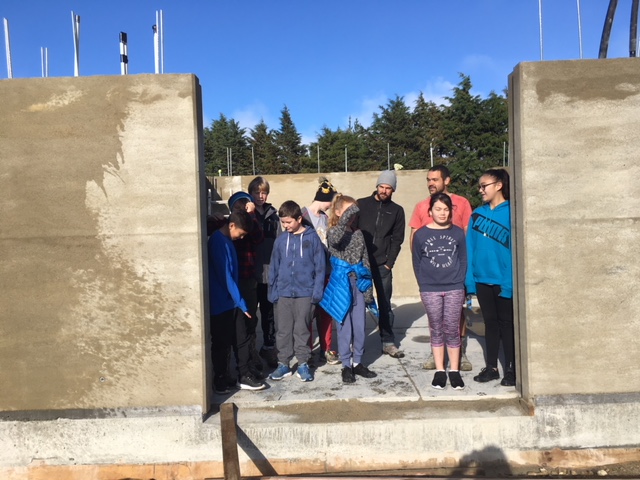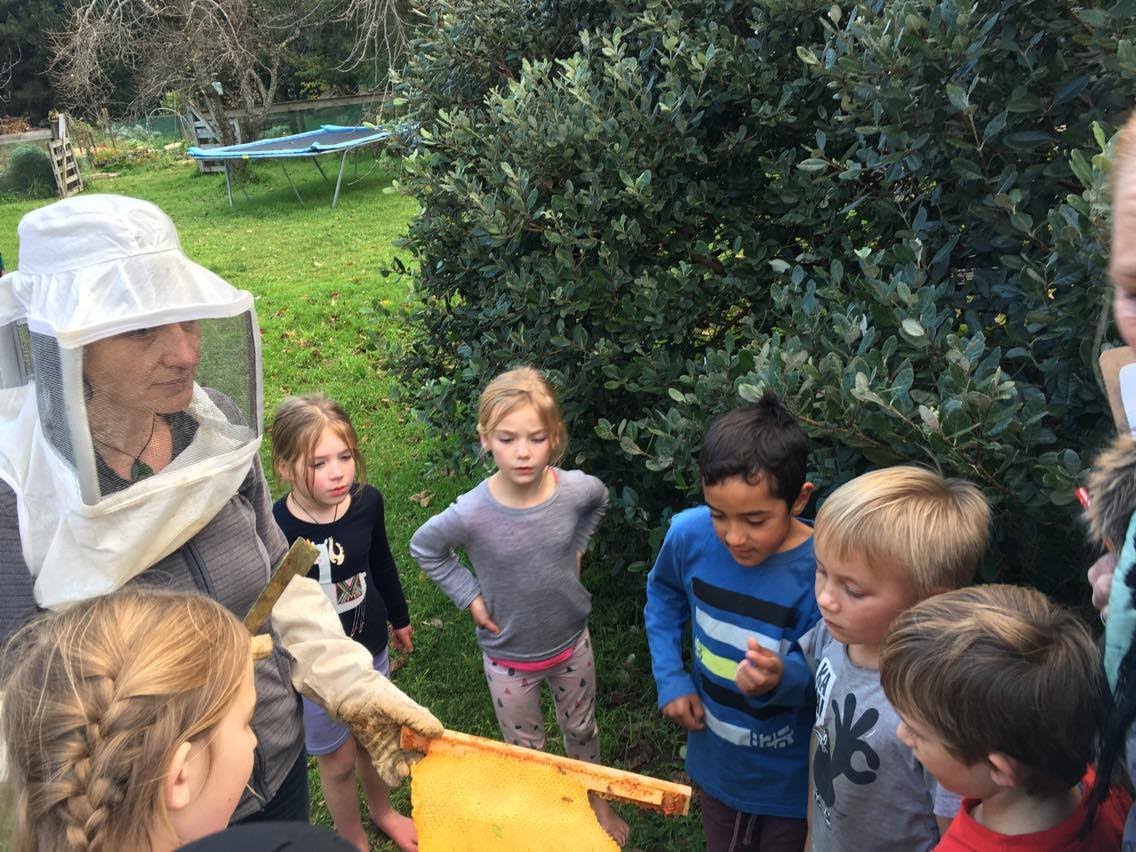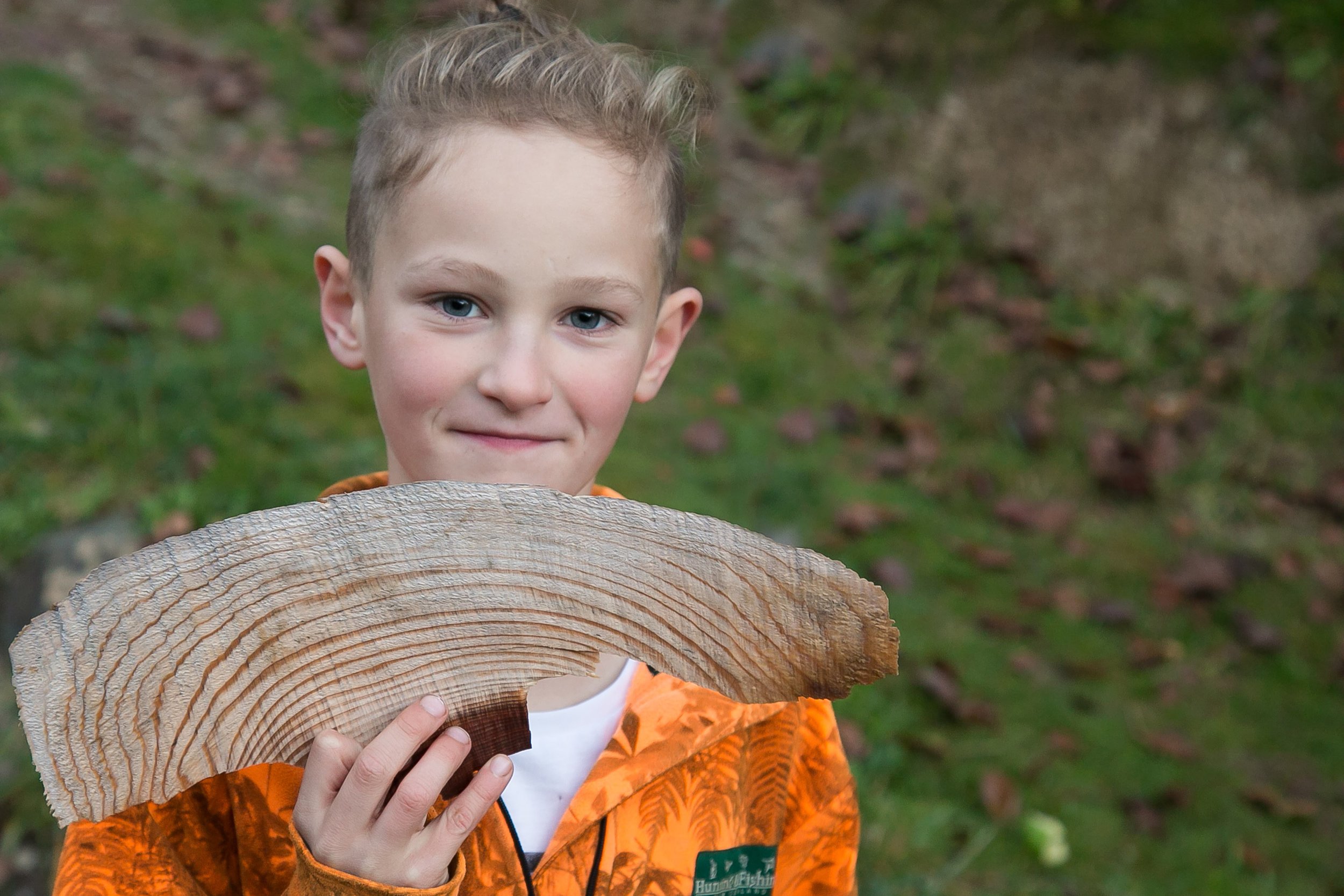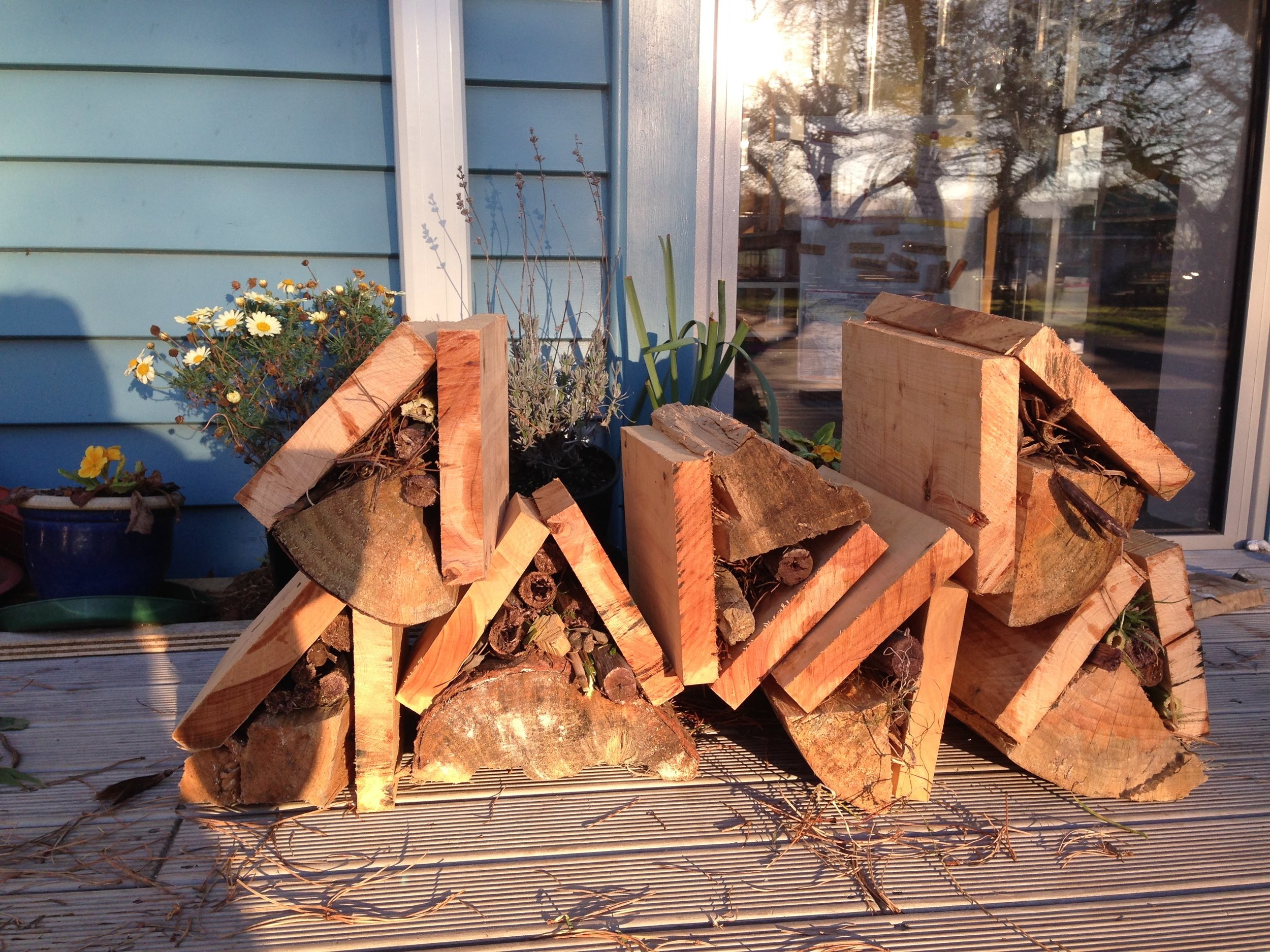2018 Student Challenges
Students from across the Wairarapa are challenged to research and develop their own outdoor, hands-on lessons/challenges for the sustainability science and agricultural learning hub they have imagined and designed.
Aim of the Project
How can a sustainable building and school farm be utilised as a teaching resource?
The project's core focus is education for sustainability. Our project seeks to empower students to take informed action for a sustainable future. Previous Curious Minds funding allowed students to develop a blueprint for turning an empty rural school field into a sustainable science and agricultural learning hub. The initial research and planning phase is coming to an end, the logical next step in our project is to challenge students to explain how the school farm and science hub they have designed will enable science and technology to be investigated.
Inspired by best practice examples such as the farming curriculum developed at Hukeranui Primary school in Northland, the new challenges are:
- How will the proposed building teach about new technologies?(e.g., generating power or maintaining a constant indoor temperatures)
- How can the proposed farming activities be used to teach STEM subjects?
The goal of this second phase is to produce lesson plans in 10 themed areas - five related to building and five to farming which promote hands-on activities to fuel student curiosity and allow independent cross-curricular learning to take place inside and outside the classroom. Students will research and develop their own sustainability project-based learning curriculum related to shelter and food production.
This project utilises new and existing partnerships, expanding the regional science and technology mentoring network already established. Mentoring builds community resilience and connectedness and values local experts from the beekeeper to the biochemist. The advantage of a problem solving learning approach is that it cuts across multiple curriculum areas, enhancing the students knowledge in several subject areas. Applying science and technology learning to the real life challenge of sustainability provides a unique opportunity for students to explore and develop new responses for future resilience.
What we're planning to do
Building on the success of our current CM funding, we plan to harness our students enthusiasm and passion for project-based outdoor learning. Now is the perfect time to capture all the ideas generated by a year of research and development, and challenge the students to use what they have learned about sustainable farming and building techniques to develop their own practical hands on science and technology curriculum.
The challenge is designed to inspire and promote science and technology skills with a necessity for creativity and scientific investigation. Successful experiments used to explore aspects such as soil chemistry used in the previous year can act as a starting point for theme and lesson plan development. Students can reflect on what they have enjoyed and what they would like to learn more about.
Phase I March-June
Weekly extracurricular workshops will engage students from the 3 schools to choose 10 themed areas under the education for sustainability framework in the NZ curriculum. Curricular challenges and lesson plans will be developed under the themes. (e.g., Farming theme: Pollinating insects)
Phase I outputs:
- Five sustainable farming themes and at least 6 lesson plans/challenges per theme
- Five green building themes and at least 6 lesson plans/challenges per theme
- 6 consultations with expert mentors
- Students present progress
Phase II July - December
In the next five months the curricular outputs will be tested and refined.
Phase II outputs:
- Engage with a further 300+ students in three new schools as well as the three original schools
- Challenges - building and renewable energy challenges developed and tested with partner organisations
- Public workshop on sustainable farming
- All Lesson plans/challenges and teaching resources made available online Student led teachers symposium in December
- Upon project completion project outputs will be presented to the community and available on partner/school webpages.

